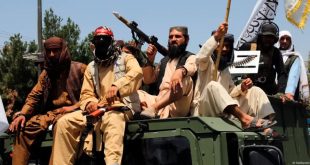Codifying, Articulating and Translating Amaanism: an Undocumented Ideology and an Alternative Narrative
By Asadullah Daudzai-We are a nation of much sensation and high talks and less consciousness and actions, we talk a lot but we act rarely, we are attached to sensation and thus always driven by it but less exposed and friendly to consciousness and this Afghan typical disposition has its own historical, social, cultural and religious factors. The stated factors have constructed our collective wisdom, psyche and mentality in a way that though we have good intentions behind the things that we wish to aspire, embrace, do, celebrate and acquire however not consciously but sensationally. The problem is with the relation and balance between our consciousness and emotions, we fail/unable to realize and maintain how and where to develop and apply reason and consciousness and where and to what extent utilize emotions and fervors.
Same is happening with the celebration of our national days, we each year celebrate our 1919 independence day though with relative zeal and fervors but with less understating about King Amanullah Khan, Queen Soraya and their unprecedented popular reforms and feats that (were not only new and first in Afghanistan but entire region) not match region but the world. We celebrate and eulogize that specific day but not the man behind it and the era after wards that mark the golden period/of Afghan history which ushered in modernization, progress, state building, education, women rights, constitutionalism, industry, freedom and liberty, connectivity and engagement with the world, detribalization and nation building, liberalism, military professionalism and power and dozens of others reforms and schemes of the great visionary, progressive and liberal leader and the queen. World know much more than us about all these great and unprecedented because we are a nation of saga, we are a warrior race we are interested and concerned with the victory, the war, the bravery not with what we achieve the freedom for, not with what we start to have after independence and war, not with what transform Afghan state and society, not with the reforms and feats that one take high pride which none other nation of the region was exposed to it, not with what that started a new and alternative discourse even in early 20th that even today we fear to talk about it. Why it’s so, why we are less exposed to it, why we are less interested in it, why we are not educated about it, who and what has narrowed this celebration only to slogans, flags and emotions, who and what has not let us to go and look beyond independence day, what we celebrate, the independence, the saga of war and valor, the one who gain and declared it, or the golden era that after come after it, what message we get and what message we deliver and about what; Amaanism, modernization, constitutionalism ,popular reforms or again the narrowed definition and celebration of independence and the war fought for it.
It’s the time though late to look and go beyond this narrow narrative of independence to know, study and dig about Amanullah Khan, Soraya, Mahmood Tarzi, popular reforms and last but not the least Amaanism the ideology that pushed not only the freedom but opened a new era and chapter of progressiveness, modernization and democracy in Afghan history and region. Before discussing and elaborating on Amaanism I want to discuss who and what has built the narrow narrative which we though celebrate Independence Day but not the one who was behind it. Regressive, radical and obstructionist forces who stand against him and his reforms has made this un-matching visionary and progressive leader for many reasons but two are important to cite, one he by his reforms decrease and the power, role and privileges of mullahs, religious scholars and tribal leaders and influential for to establish a strong central government and professional state institutions, the other reason was religious dogmatism and obstructionism, cultural conservatism and foreign stimulation, these reasons collectively resented mullahs and tribal chiefs to make people rise against the kingdom on account of being diverted and strayed from Islam and being the agent of west and infidels. The 1929 rebellion and subsequent abdication of Amanullah Khan was not the end but the same false image of the King portrayed in the mind of the successive generations was continue to transfer and maintain to date that no one bother to investigate about the truth, in a way it has become a taboo not be touched. The narrative of controversialization of Amanullah Khan and his golden era deprived our nation to study and carry one his vision, dream, aspirations, schemes that collectively shape the progressive, liberal, modern and democratic ideology of Amaanism. It was not Amaanism that remained un-codified, unarticulated and un-translated but moreover his 76 popular reforms that transformed the face of Afghanistan and even the region and inspired many other nations and countries including Turkey and Kamal Ataturk who later on founded Republic of Turkey premised upon Kamalism.
How many of us know about Amaanism and 76 popular reforms of King Amanullah Khan? How many of our intellectuals and intelligentsia have conducted research on his these reforms? How many of us have worked out our research thesis and dissertation of Master and PhD? Perhaps none or handful of people, but I know many teachers and professors of neighboring country Pakistan who have done their PhD research only on his popular reforms let alone other decrees and schemes. Then for what we celebrate? What we cherish? What is our message and commitment to our people, successive generation and the world on this day? The day we come to find answers for these questions and start to know about Amaanism and Amani era we would be consciously celebrating and cherishing Independence Day and would probably have message to convey and a pride to take.
Being part of the young generation I call upon my fellow youth to start to study, research, analyze and codify Amaanism and popular Amani reforms upon which a modern and progressive state was supposed to be founded by Amanullah Khan, organize around Amaanism, disseminate Amaanism, educate people on it and change the false and controversial narrative of the regressive forces and religious obstructionist who are more in numbers, who are more organized, who are more resourced and who are more conscious today than the era of Amanullah Khan.
Hope for the revival and continuation of Amaanism,
Asad Daudzai is a writer and researcher associated with AORSS and CPTS think tanks. He is exclusively working on the hybrid phenomenon of TERM (terrorism, extremism, radicalization and militancy) and as well as on social, political and educational issues. He can be reached at [email protected]
 Afghanistan Times Latest News and Analysis from Afghanistan and the Region
Afghanistan Times Latest News and Analysis from Afghanistan and the Region




